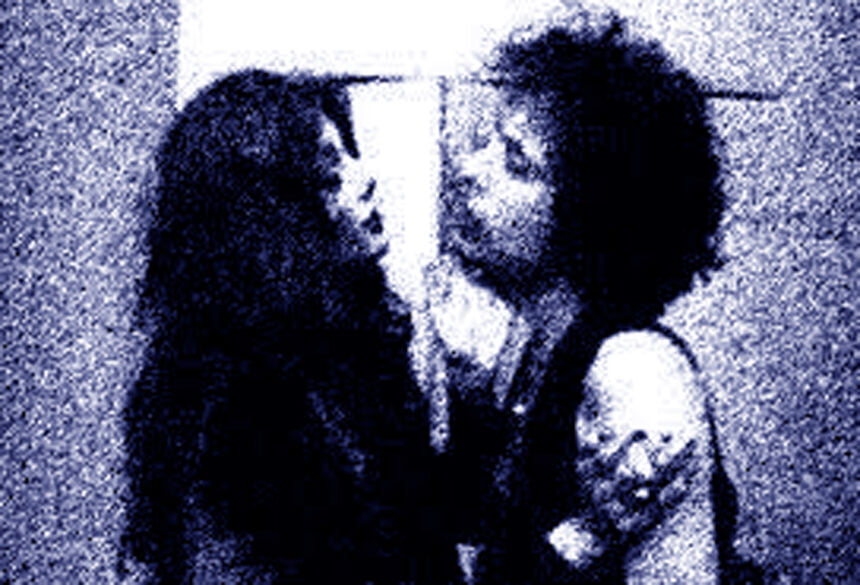BOB DYLAN ABANDONED LOVE EXTRACTS….
… In the studio version the first line is changed to …I can see the turning of the key… which implies a greater self awareness of the internal process being described. Right now, though, he is in the dark, and is thus very vulnerable. Then we hear that …I thought that he was righteous but he’s vain… The use of the term ‘righteous’, which normally tends to be associated with religious morality, seems somewhat out of place here, but certainly represents the narrator looking inside himself and discovering his own insecurities. We do not hear about the clown again, but his presence can be felt throughout the song. He is always niggling at the narrator and, like Lear’s fool, makes him question his own feelings and motivations. The final line …Something’s telling me I wear the ball and chain… suggests that the narrator is ‘imprisoned’ within his own mind, perhaps by this malicious ‘joker
The next verse is a supreme example of Dylan’s unique ability to mingle highly ambiguous poetic imagery with colloquial asides. It begins: …My patron saint is fighting with a ghost/ He’s always off somewhere when I need him most… These lines seem to show the narrator cursing his own luck, symbolised by the (frequently absent) ‘patron saint’. The saint should be protecting his mental health, but the ghosts of the past are preventing him doing so. The next two lines work in a similar way: …The Spanish moon is rising on the hill/ But my heart is telling me I love you still… A ‘Spanish moon’ is a name for a phase of the moon that provides a particularly bright means of illumination. It should thus be clear to the narrator that his love is hopeless, but his heart is clearly telling him the opposite. Dylan sets up the tension between the feelings of the heart and logical sense quite brilliantly here. He then tells us that he ‘returns to town’ with a ‘flaming moon’ – no longer just bright, but on fire. This appears to represent the fact that his obsessive passion is now getting dangerously out of control. This is clearly demonstrated when he glimpses the woman in the street and …begins to swoon… We then switch to a rather uncomfortable intimate revelation: …I love to see you dress before the mirror… The narrator is clearly having erotic thoughts now. Dylan, as he does on other occasions, pronounces ‘mirror’ as ‘meeeeer’ in order to facilitate the next rhyme. He stretches out the final line like a blues singer in full ironic mode: …Won’t you let me in your room one time before I disappear… He is manifesting here more as the ghost than the clown. But the appeal he is making to her is clearly futile.
Verse three begins with two of Dylan’s most quotable lines: …Everybody’s wearing a disguise/ To hide what they’ve got left behind their eyes… but when he refers to ‘everybody’ it seems that he may really be talking about himself. The whole song is concerned with what he has ‘got left behind his eyes’ – all the hidden psychological strains that a creative artist has to bear, especially when in a relationship. But the narrator admits that …Me, I can’t cover what I am… This is quite an admission for a poet who (as Joan Baez so memorably puts in it in her Diamonds and Rust) is …so good with words/ And at keeping things vague… The line which follows this …Wherever the children go, I’ll follow them… is perhaps the most mysterious in the song. The narrator seems to want to follow a path of innocence that is barred to him. But this is made clearer in the next verse, in which he now begins to rail against external forces: …I can’t play the game no more, I can’t abide/ By their stupid rules that kept me sick inside… Although he wants to embrace his ‘inner child’ this is clearly no longer possible as he feels hidebound by the ‘stupid rules’ of society’s strictures. He describes these rules very memorably as having been ...made by men who’ve given up the search/ Whose gods are dead and whose queens are in the church… This rather surprising but highly distinctive rhyme takes the form of a scathing aside directed at those who have abandoned the quest for spiritual fulfilment, which to Dylan is identical to poetic inspiration. The reference to the queens being ‘in the church’ seems to imply that they are buried in such a building and are therefore as dead as the redundant gods which the unnamed ‘they’ are following.
LINKS
STILL ON THE ROAD – ALL DYLAN’S GIGS



Leave a Reply